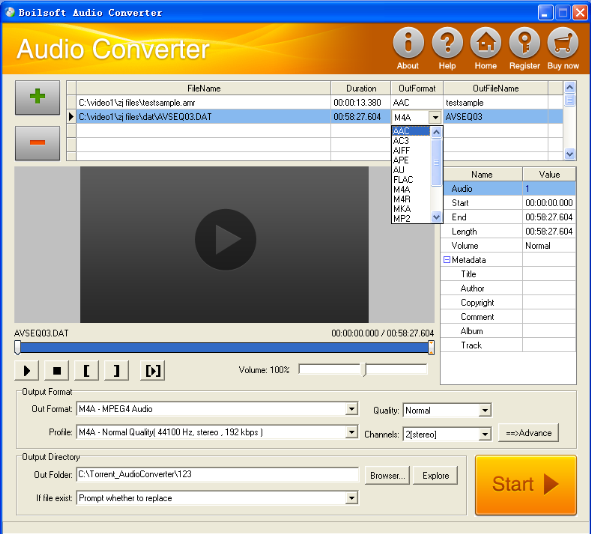
#AUDIO OGG CONVERTER ARCHIVE#
Secondly, grab the oggHelper_dd-mm-yyyy archive and extract it Select “Additional Include Directories” from the list of now available options and add the extracted archive path to it. Now go back to the “Configuration Properties” section then to the “C/C++” subsection, then to the “General” item. Add libogg_static.lib, libvorbis_static.lib and libvorbisfile_static.lib to it (each on separate lines)Ĥ. Go to the “Input” item and select “Additional Dependencies”. Select “Additional Library Directories” from the list of now available options and add the extracted archive path to it.ģ. Go to the “Linker” subsection, then to the “General item”. Click on the “Project” button on the menu bar of Visual Studio, select Property Pages from the drop down menu ( Property Pages), then go to “Configuration Properties” section. Grab the libvorbis library archive from this article and extract it.Ģ.

#AUDIO OGG CONVERTER HOW TO#
I will be using Visual Studio, if you are using another IDE please find out how to link a static library to your project.ġ. If you already know how to setup your development environment to compile with libvorbis, please skip to the second part of this section. NOTE that the libvorbis library is written in such a way that an ogg will be decode to a PCM having the same channel (a mono channel ogg will decode to a mono channel PCM).
#AUDIO OGG CONVERTER CODE#

The libvorbis library can be downloaded from or or from this article’s attachment. It free nature and not been encumbered with patents like the MP3 as made it gained popularity in both open and closed source works like WebM (the HTML5 standard video format), Matroska (*.mkv), and numerous games. However it didn't and hasn't replaced MP3 but it has become a standard and decent format in its own right. The MP3 format gained popularity in the mid 90 but the Fraunhofer Society announced plans to start charging licensing fee for it use in 1998, this prompted the Xiph.Org Foundation (home of the OGG’s Ogg Vorbis, FLAC, Theora, etc) to intensify work on the already ongoing Vorbis project aiming to make it free and open-source thereby replacing MP3.


 0 kommentar(er)
0 kommentar(er)
